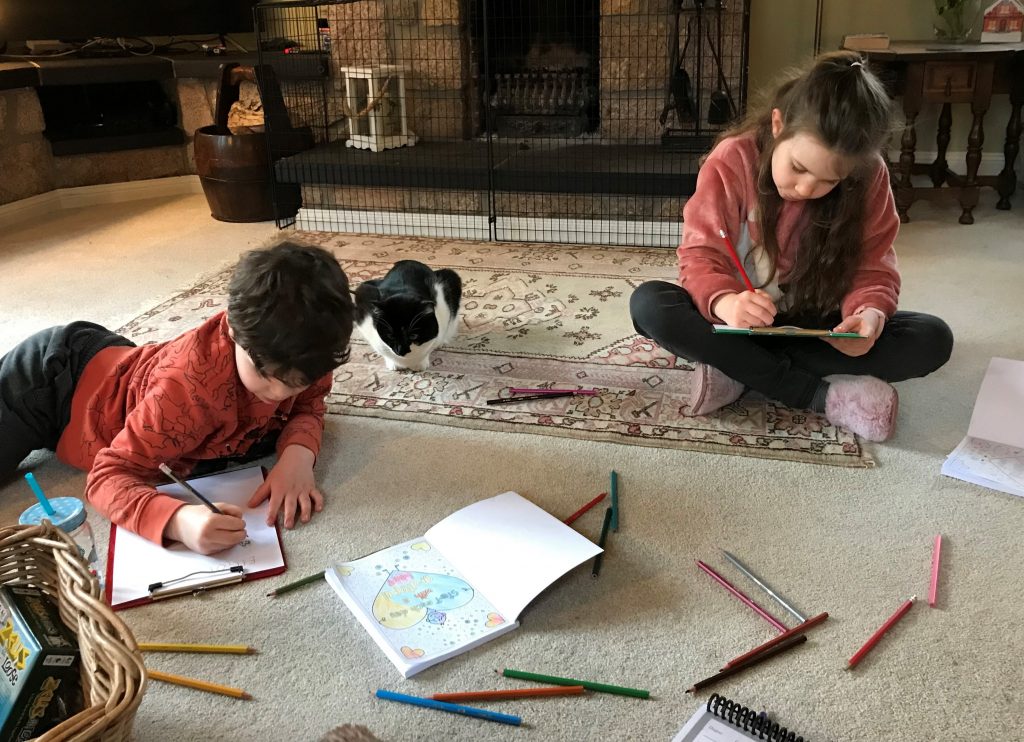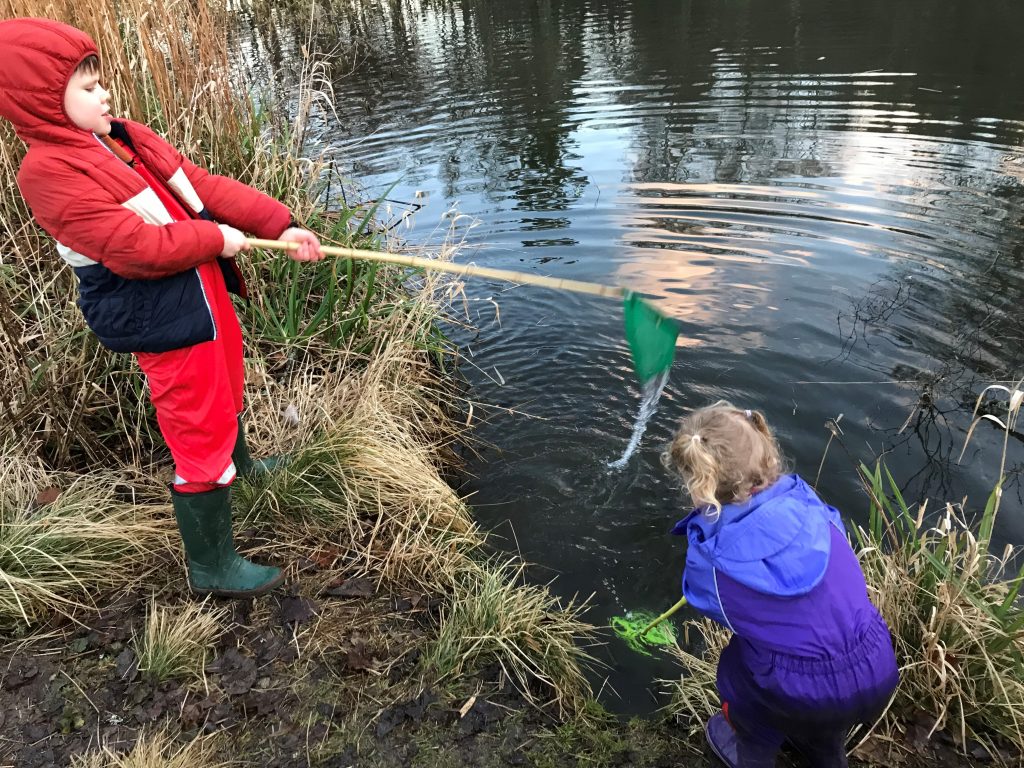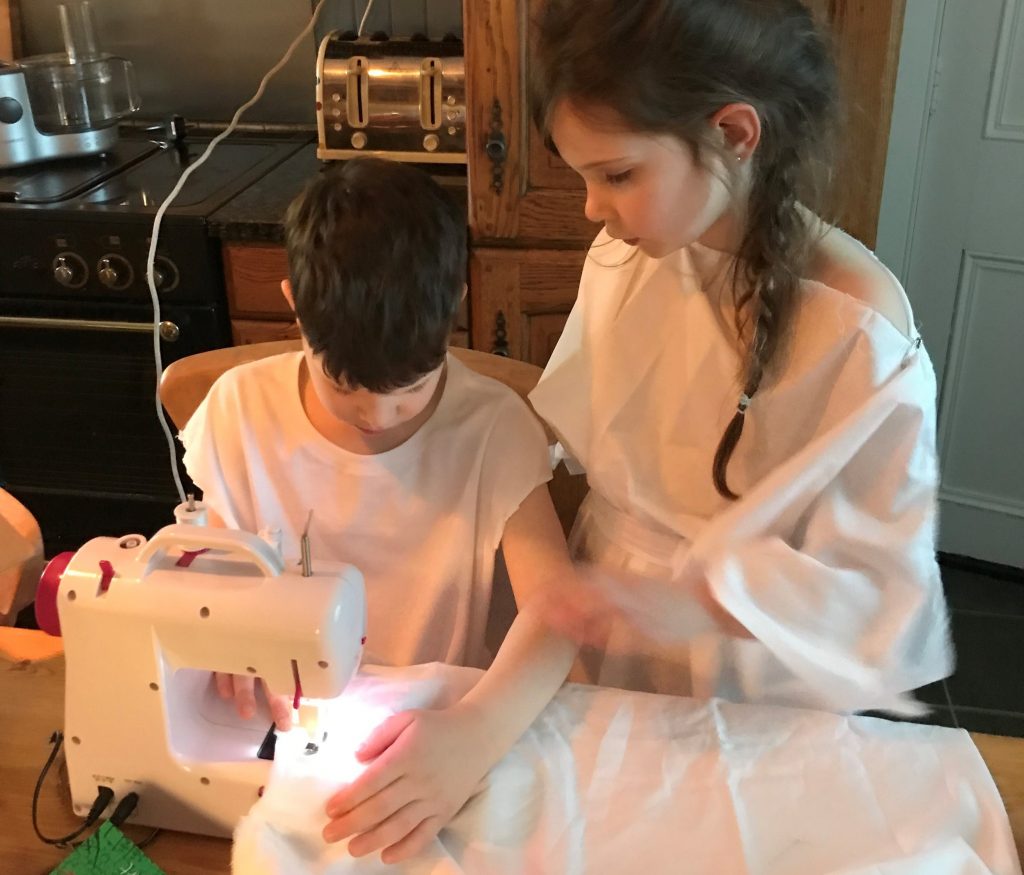
Until the end of 2021, I was a primary school teacher and my two older children, then aged 9 and 7, attended the same school at which I taught. In many ways it was an ideal situation. I could walk to school with them sometimes. I got sneak peaks of what they were up to in class and in the playground. On my break time, their teacher might share the odd sweet story of something they had said or done that day. I knew the staff, school routines and procedures as a parent and as a teacher. I didn’t have to juggle two sets of sports days or Christmas concerts – a true gift at those busy times in December and summer! Despite all of this, at the end of 2021, I handed in my notice and submitted a letter to our local authority seeking consent to withdraw both my children from school. So how did we reach that point?
At the time, my reasons for even considering home education worried me a lot. Was this a reaction to the stress I was experiencing in my work due to covid? Was I subconsciously looking for an excuse to leave my job and had landed on pulling my children from school as the solution? Did I just miss my children, having spent so much time in a little family bubble during lockdown? Was I having a (slightly!) early mid-life crisis?! I felt it was important to consider all of these possibilities and I spent months agonising on whether home education was the right decision for us. Finally, I could no longer ignore my reasons in favour and I had to give home education a try. Below I share my four main reasons for beginning to home educate. They are sad, hopeful and maybe even misguided, but I am grateful for them all, as these reasons have brought us on a wonderful journey.
The pressure on the education system is mounting.
As we returned to school post covid lockdown, the number of children in schools requiring extra support, both academically and behaviourally, had understandably grown. I observed that, as a teacher, I had less time to stretch and support those children who got along just fine and certainly very little time for those children lucky enough to be naturally gifted in a particular academic area. Virtually all my efforts were focused on supporting and regulating those children with academic and behavioural needs. As it should be – of course my efforts must go to where the need is greatest. But the pool of need had grown and sadly, the available support is being cut.
I want to be very clear that I am not against inclusion – inclusion is a wonderful ideal and should be the aim of all just education systems. Inclusion benefits all the children in a school community; I have been lucky enough to see inclusion work as it should and when it does so, it is powerful and beneficial for all learners in that environment. But inclusion needs to be properly financed to give enough staff and resources to properly support learners with additional needs. This in turn allows for true inclusion – where learners with additional needs are not just supported to access a system which was not designed for them, but instead a system is created which is designed to suit all learners.
The ripples from the lack of support for those individuals who need it most radiate outwards, most deeply affecting those at the centre and eventually affecting all those in the environment. This began before covid, but covid has increased the pressure. Support is being cut, or diverted to those at crisis point, whilst others struggle. This is not the fault of individual schools or even councils, this problem starts at the top. I decided my children did not need to be affected by the lack of value placed on education by the government – they could be better supported and challenged at home.

Childhood is too precious to waste.
During the pandemic, one of my greatest feelings of sadness for my children was around lost time – so many months without family and friend visits, sleepovers with grandparents, day trips, events, clubs and holidays. Online meet ups and virtual trips didn’t cut it for us. Like most parents, I never imagined a period like that in the lives of my children. As normality returned to a certain extent and we went back to school, I turned a much more critical eye on the system as a whole. I became frustrated by the time wasted in a classroom, as the children registered, chose lunches, washed their hands (again!), lined up to go outside, lined up to come inside and waited as tasks were explained to others. In school, time is wasted purely through the logistical constraints of one adult moving twenty to thirty children through a school day. This is not a criticism, but purely a fact of the situation. Before covid I had unquestioningly accepted this for my children, but after, I was frustrated by further wasted time – childhood goes too fast and their’s was slipping away before my eyes.
At a deeper level, I realised that I wanted my children to be experiencing the world and all it has to offer while they still had the freedom of childhood. I realised that I did not want them to be confined to school. At the time I withdrew them, covid restriction were still such that they could not go on trips or have visitors in the building. Without school, we could visit people and places, attend events as we chose and take opportunities that came our way. I decided I could offer them more of the world if we lived without the restrictions of school life.

I know what they should be learning.
As I realised and accepted the above, more threads in the fabric of my opinion on education began to unravel. During covid, I had had another surprising revelation – society needs school. This might be obvious to others, but for me, when the world shut down, I was pretty frustrated with the reported reactions of some parents who could not bear the thought of looking after their own children for weeks on end. As the pandemic progressed, I have to say I changed my mind – society needs schools so parents can work. It accounts for the way the education system is designed and how it emerged during the industrial revolution. The education system has evolved in the way it has, not as a response to what is the best way to educate a child, but what is best for society. But if that is the case, is school actually what works best for my family? Society needs schools, but did we? I only worked two days a week at the time and, as I was a teacher, I knew what they should be learning. I didn’t need to send them to school to cover the curriculum, we could do it at home in half the time with double the freedom.
Now that I have been home educating for a little while, I know that parents successfully home educate without being a teacher beforehand. Based on reactions and comments from family, friends and even curious members of the public, it does alleviate the concerns of others that I am a ‘real’ teacher. Furthermore, it is an easy way for me to deflect potential criticism, as I can say, “Yes, I’m home educating them, I was a primary school teacher for sixteen years.” But the real reason I’m including it here now is that I know that had I not been a trained and qualified teacher, I would not have had the courage to withdraw my children from school to home educate them. And for that reason alone, I am grateful that I was a teacher beforehand.

My children are interested in so many things!
My final reason is maybe the most important, as when I thought about home educating, this is the reason that gave me butterflies in my stomach. Maybe I was a little biased, but I was genuinely pleased and impressed with how much my children wanted to learn. They love nature and Greek mythology and devoured non fiction books, documentaries and podcasts on their favourite subjects. They can pepper conversations with facts they learned off their own bat. At the time they left the school system, they wanted to set up their own business, which I hope to share more about in a future post. They spend time building with Lego and trying out new crafts. Wouldn’t it be a gift to their childhood if they had enough time to do all these things fully? I imagined what we could do together and what the children could learn about the world and themselves, and I couldn’t help but feel excited. I believe it is a beautiful thing to give your children time to find what they love and investigate it as fully as they wish.
So there you have it – the reasons I abandoned my seemingly ideal situation and took the plunge into home education. If you’d like to share your reasons for home educating in the comments, I would love to hear them. If you are here seeking validation or encouragement as you consider home educating, I hope you found something for you. Let me know if my thoughts resonate with you, or perhaps you have other pulls to the path of home education you would like to share.
I would like to take a moment to acknowledge the privilege involved in our decision to home educate. We have family support that allows me to work, which lessens the financial impact of home educating. We were very fortunate that my children were happy at school and that we were not withdrawing them due to difficult circumstances such as lack of appropriate support or mental health issues. For some families, home educating is not possible and for others, it is not a choice but a necessity with little alternative. We are grateful for our situation.
Leave a Reply